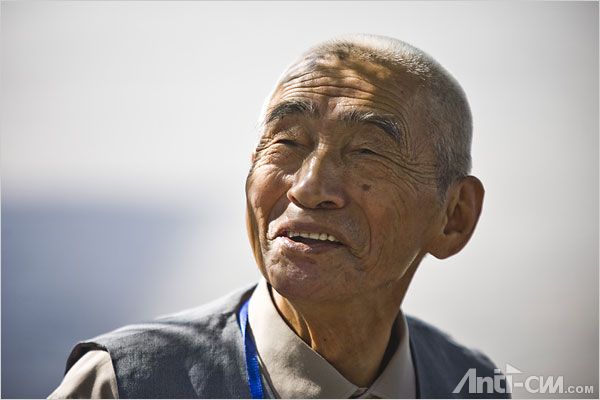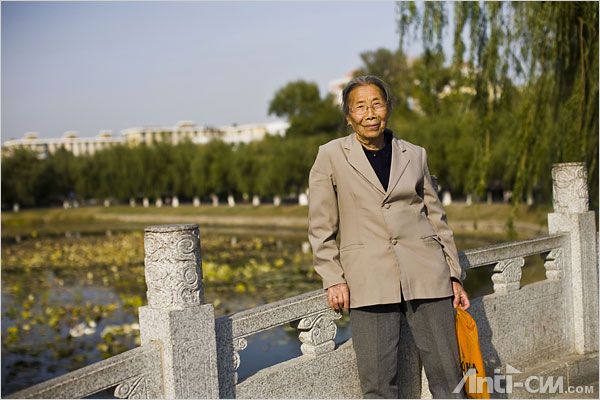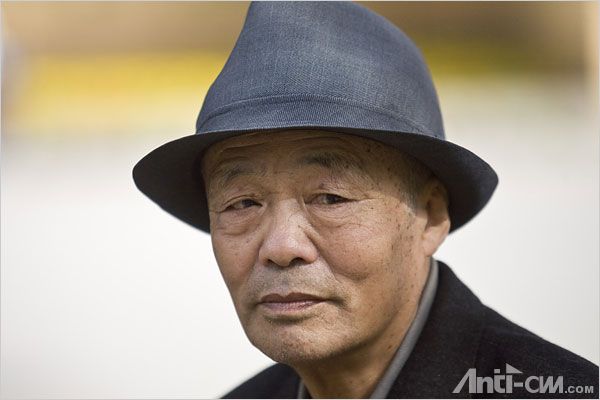本帖最后由 j小蜜蜂 于 2009-10-9 13:57 编辑
【中文标题】面对共产主义崛起造成的创伤,中国选择沉默
【原文标题】China Is Wordless on Traumas of Communists’ Rise
【登载媒体】纽约时报
【原文链接】http://www.nytimes.com/2009/10/02/world/asia/02anniversary.html
【译者】满仓
中国,长春。和人民解放军在中国内战期间夺取的其它城市不同,这个处于满洲里中心地区的工业城市的街道上,没有迎接胜利的人群来欢迎他们胜利的行军。
即使高兴地得知敌对的蒋介石国民党军队已经被消灭,在长达5个月的包围战中幸存下来的大部分居民都已经虚弱得没有力量走出家门。“我们只是躺在床上等死,”86岁的张颖花(音译)在回忆她在饥荒中死去的哥哥、姐姐和大部分邻居时说,“我们甚至爬都爬不动。”
中国的历史书中赞颂这是战争中一次决定性的胜利,毛的军队使用饥饿的手段成功战胜了可怕的国民党驻守部队,未开一枪就占领了长春。而官方历史故事中没有揭示的一件事是,16万平民也在这次从1948年6月到10月的包围战役中,丧生于这个东北城市中。
中华人民共和国在星期四用一场令人瞠目结舌的盛典沉浸在60周年的建国幸福中,但是,庆典并没有给予那些在共产党掌权过程中失去的生命一个庄严肃穆的停顿时刻。其中不仅包括内战期间死亡的数千万人,还包括毛在巩固权力的过程中被根除的上百万地主、亲国民党人士和疑似敌人。
人民解放军中校张正路(音译)在《白雪、红血》一书中记录了这场围困的过程,该书在1989年甫一出版即遭禁。书中写道:“长春就像广岛,死亡人数几乎一样。广岛的过程是9秒钟,长春是5个月。”
幸存下来的40万人是靠吃昆虫、皮带甚至街上的死尸活过来的。共产党军队攻占城市的时候,城中所有的树叶和草都在最后绝望的几个月里被吃掉了。
没有一个纪念碑或者标志物来让人们记忆这段长春平民被毁灭的历史。大部分年轻人都不知道围困战役的黑暗一面,而那些如今已经70多岁或者80多岁的幸存者,也不愿再提起那些埋藏已久的创伤。17岁的高中学生李佳琪(音译)坐在城市解放纪念碑前的台阶上说:“我总是听说,长春的解放没有流血。”
中国的学者们纷纷避开这个话题。当被问到这段历史时,几个历史学家都拒绝接受采访。围困期间自学成才的退休核物理学家周杰闻(音译)解释道,这里的很多细节如果被公开,将会玷污军队作为平民保护者的声誉。这些细节包括:向试图逃离城市的人开枪;不理会铁丝网另一边把饥饿的孩子高举过头顶的母亲的乞求。周先生说:“导致如此大量的平民死亡是人民解放军的重大失误,也是内战期间独一无二的惨剧。”
当然,历史总是由胜利者来编写的,共产党从不羞于让历史为核心情节服务。教科书把解放描绘成人民起义的必然胜利,最近几个月充斥电视银屏的爱国主义电影毫不掩饰地把毛的光荣部队描绘成伟大的解放者。革命过程中那些令人不快的方面,比如双方交火中误伤的平民,一般都被忽略掉。
一名香港出版商鲍普(音译)在去年春天因出版了一本赵**的回忆录而激怒了党的领导层,(译者注:赵**介绍翻译略)他说:“党对客观历史事实没有兴趣,最基本的一点是历史可以被改写,并被国家所利用。但是这需要长期以来的审查制度,而这会对社会产生负面的影响。”
隐瞒事实所造成的其它未预料后果难以统计。很多中国人,特别是那些在战争、饥荒和政治迫害的年代中成长起来的一批人,他们的心灵伤口几乎没有公之于众的机会,更不用说愈合了。
香港大学教授龙应台曾经调查过包围长春的战役,她说,在创作新书《大江大海一九四九》时,她采访过的每一个老军人在回忆这段经历时都会痛哭流涕。“这是一段不可言状的国家惨剧,它从来没有被公开,而是被温和地搁置了60年。”
这本书上个月在台湾出版,并立即被大陆封杀。书的内容是通过讲述幸存者的故事来刻画恐怖的内战。她说:“有清楚记忆的幸存者已经不多了。”
在长春劳动公园里聚集的那些年老的幸存者们大部分都不愿意讲述这件事。但是经过鼓励,一些细节慢慢浮出水面。他们说一些婴儿虚弱得无法哭出声音;为了一小口食物而出售新娘;以及在围困部队眼皮底下方圆一英里的无人区有数千人死亡,原因是林彪将军下令要把长春变成一座“死城”。
在围困的前几个月,食物还是可以买到的,尽管价格昂贵。到了夏末,人们在用金条交换一块饼干。

孟庆华(音译)说他在饥荒的时候吃玉米秆和树皮。
85岁的孟庆华说:“起初我们吃腐烂的高粱,然后吃玉米秆,最后吃树皮。一个星期没有吃东西之后,你会觉得非常困乏。这个时候你就快死了。”
仅有的一点美国飞机空投的救援物资都被国民党军队迅速吞噬。供给停止之后,士兵就持枪掠夺平民的食物。据《白雪、红血》中的描述,城里贫困地区的家庭,十分之九都被洗劫一空。

1948年共产党围困长春战役中,至少有16万平民丧生,大部分是饥饿而死。张颖花(音译)说她的兄弟姐妹和邻居都死于饥饿。
尽管她的家境相对要好一些,张颖花说,到了夏末,家里也没有一点食物了。他们拆开枕头,吃里边的玉米壳。后来他们煮皮革来吃。
25岁的张女士在那时明白,只有吃这些无法下咽的东西才能活下去。她说:“我们每天只吃一汤匙的食物,这刚刚可以勉强维持一个人的生命。但是孩子们不愿意吃。”当她的6岁的妹妹和9岁的弟弟最后死去的时候,她的父母几乎没有力量站起来,把尸体拖到街道上。

作为一名军人,王俊儒(音译)不得不赶回饥饿的平民。
一些被指责执行封锁命令的人也为此而感到后悔。王俊儒说他当时15岁,共产党强迫他参加了一个民兵组织。后来,他和17万名士兵一起执行了赶回饥饿的平民的命令。他说:“我们被告知他们都是敌人,必须得死。”
无论他当时对革命的热情火焰有多么高涨,都被后来23年的劳改生活所熄灭了。他说这是惩罚,因为他在大学学习时侮辱了一个党内官员的亲戚。被释放之后,他的余生在运送木头的工作中度过。
76岁的他满腔愤怒。他说,年轻人应该了解长春以及中国内战究竟发生了什么。“他们只知道宣传的内容,也许如果他们了解到战争有多么的恐怖,他们可以在将来尽量避免它再次发生。”
原文:
CHANGCHUN, China — Unlike in other cities taken by the People’s Liberation Army during China’s civil war, there were no crowds to greet the victors as they made their triumphant march through the streets of this industrial city in the heart of Manchuria.
Meng Qinghua said he ate corncobs and bark to survive the famine.
Even if relieved to learn that hostilities with Chiang Kai-shek’s Nationalist Army had come to an end, most residents — the ones who had not died during the five-month siege — were simply too weak to go outdoors. “We were just lying in bed starving to death,” said Zhang Yinghua, now 86, as she recalled the famine that claimed the lives of her brother, her sister and most of her neighbors. “We couldn’t even crawl.”
In what China’s history books hail as one of the war’s decisive victories, Mao’s troops starved out the formidable Nationalist garrison that occupied Changchun with nary a shot fired. What the official story line does not reveal is that at least 160,000 civilians also died during the siege of the northeastern city, which lasted from June to October of 1948.
The People’s Republic of China basked in its 60th anniversary on Thursday with jaw-dropping pageantry, but there were no solemn pauses for the lives lost during the Communist Party’s rise to power — not for the estimated tens of millions who died during the civil war, nor the millions of landlords, Nationalist sympathizers and other perceived enemies who were eradicated during Mao’s drive to consolidate power.
“Changchun was like Hiroshima,” wrote Zhang Zhenglu, a lieutenant colonel in the People’s Liberation Army who documented the siege in “White Snow, Red Blood,” a book that was immediately banned after publication in 1989. “The casualties were about the same. Hiroshima took nine seconds; Changchun took five months.”
The 40,000 who survived did so by eating insects, leather belts and, in some cases, the bodies that littered the streets. By the time Communist troops took over the city, every leaf and blade of grass had been consumed during the final desperate months.
There are no monuments or markers recalling the events that decimated Changchun’s populace. Most young people have no knowledge of the darker aspects of the siege, and the survivors, now in their 70s and 80s, are reluctant to give voice to long-buried trauma. “I’ve always heard that Changchun was captured without bloodshed,” Li Jiaqi, a 17-year-old high school student, said as she sat on the steps in front of the city’s Liberation Memorial.
Chinese scholars have largely steered clear of the subject. Several historians, when asked about the episode, declined to be interviewed. Zhou Jiewen, a retired nuclear physicist in Changchun who has become a self-taught expert on the siege, explained that many key details, if widely disseminated, would tarnish the army’s reputation as defenders of the common man. Those include shooting civilians who tried to escape the city and ignoring the pleas of mothers holding aloft starving children on the other side of the barbed-wire barricades. “To cause so many civilians to die was a great blunder by the P.L.A. and tragedy unparalleled in the civil war,” Mr. Zhou said.
While history is often written by the victors, the Communist Party has never been shy about shaping the past to serve its central narrative. Textbooks portray the revolution as the inevitable outcome of a popular uprising; the patriotic films that have flooded television in recent months are not subtle in their glorification of Mao’s troops as munificent liberators. The unpleasant aspects of the revolution, including innocents caught in the cross-fire, are often omitted.
“The party has no use for objective history,” said Bao Pu, a Hong Kong publisher who infuriated party leaders last spring by printing the memoir of Zhao Ziyang, the deposed Communist Party leader who spent 15 years under house arrest after opposing the violent crackdown on democracy protesters in 1989. “The basic idea is that history can be rewritten and used as a tool of the state. But this requires constant censorship. And it has a destructive effect on society.”
Other unintended consequences of suppressing the truth are hard to quantify. Many Chinese, especially those who grew up during the tumultuous decades of war, famine and political persecution, carry psychic wounds that are seldom expressed, let alone healed.
As a soldier, Wang Junru had to drive back hungry civilians.
Lung Ying-tai, a University of Hong Kong professor who studied the siege of Changchun, said nearly every elderly army officer she interviewed for her book about the civil war, “Big River, Big Sea — Untold Stories of 1949,” broke down when recounting what he experienced. “It’s an unspeakable national trauma that has not once been opened up and gently treated for 60 years,” she said.
At least 160,000 civilians died in the Communist siege of Changchun in 1948. Many starved. Zhang Yinghua said the famine killed her siblings and neighbors.
The book, which was published last month in Taiwan and promptly banned on the mainland, seeks to portray the horror of the civil war through the stories of those who survived. “There are not too many left who can clearly remember,” she said.
The elderly survivors who gather in Changchun’s Labor Park most days are not eager to tell their tales. But after some prompting, the details spill out. They describe babies too weak to cry, brides sold for a morsel of food and the milewide no man’s land where thousands perished in full view of troops under orders from Gen. Lin Biao to turn Changchun into a “dead city.”
In the first few months of the siege, food could be purchased, albeit at exorbitant prices. By the end of the summer, people were trading thick gold rings for a biscuit.
“At first we ate rotten sorghum, then corncobs and then the bark off the trees,” said Meng Qinghua, 85. “After a week of not eating you’d get very sleepy. Once that happened, you would start to die.”
The few airdrops of aid, delivered by American planes, were quickly gobbled up by Nationalist troops. When those stopped, the soldiers stole food from civilians at gunpoint. In the poorer quarters of the city, according to “White Snow, Red Blood,” 9 of 10 families were wiped out.
Although her family was relatively well off, Zhang Yinghua said there was nothing to be bought by the end of summer. They opened their pillows and consumed the corn husk filling. Later they boiled and ate leather.
Then 25, Ms. Zhang understood that swallowing such unpalatable matter was the only way to survive. “Every day we would eat a spoonful, just enough to maintain the flicker of life, but the children would not,” she said. When her 6-year-old sister and her 9-year-old brother finally died, her parents, barely able to stand, dragged their bodies to the street.
Some of those charged with enforcing the blockade have come to regret their participation. Wang Junru said he was 15 when the Communists forced him to join a militia for teenagers. Later, he joined 170,000 other soldiers ordered to drive back hungry civilians. “We were told they were the enemy and they had to die,” he said.
Whatever zeal he had for the revolution was extinguished by the 23 years he spent in a labor camp — punishment, he said, for insulting the relative of a party official when he was a college student. After his release, he spent the rest of his working life hauling logs.
Now 76 and embittered, he said young people should learn about what happened in Changchun — and during the rest of the civil war. “They only know the propaganda,” he said. “Maybe if they know how horrible war is, they can try to avoid it in the future.” |